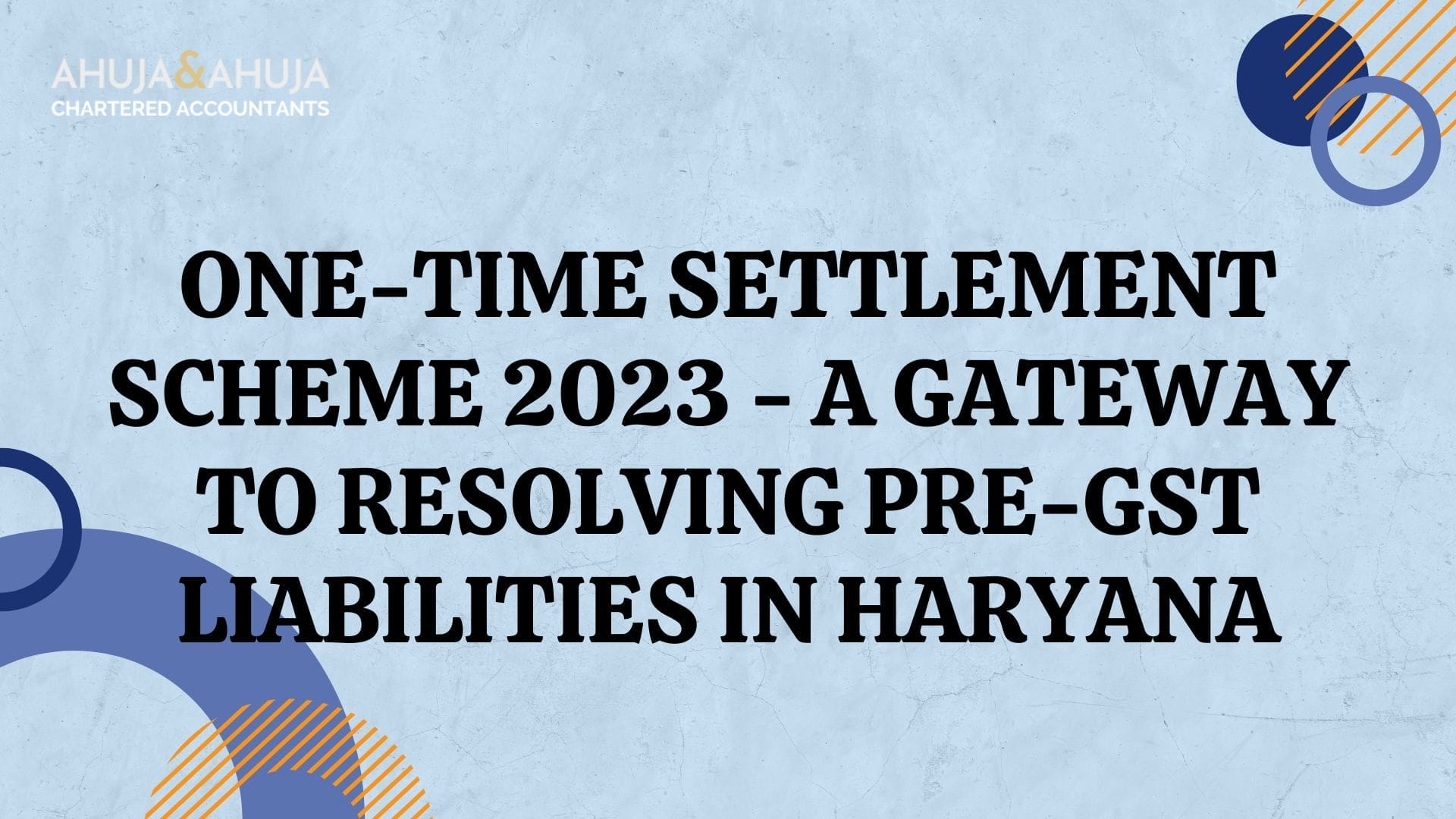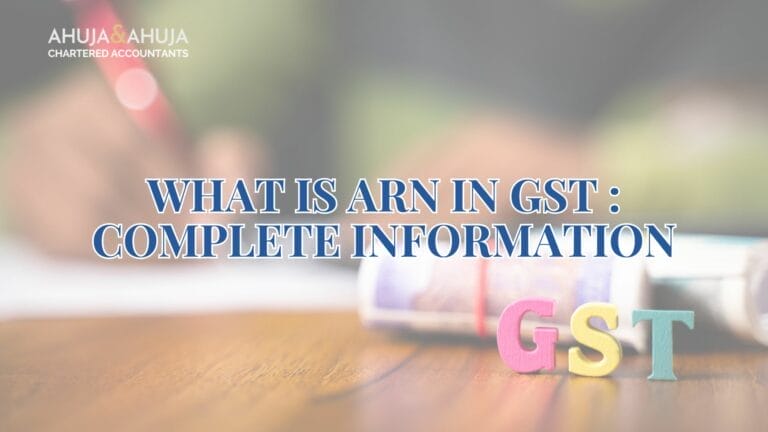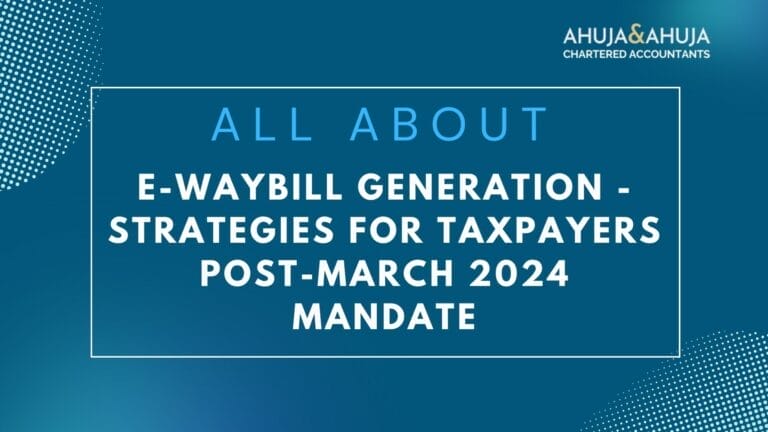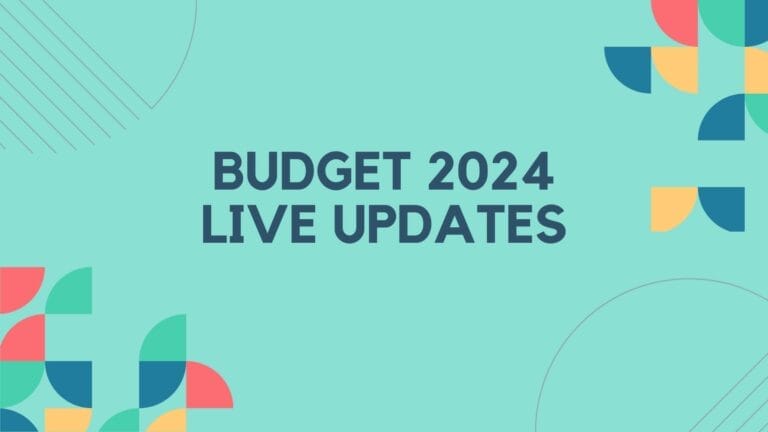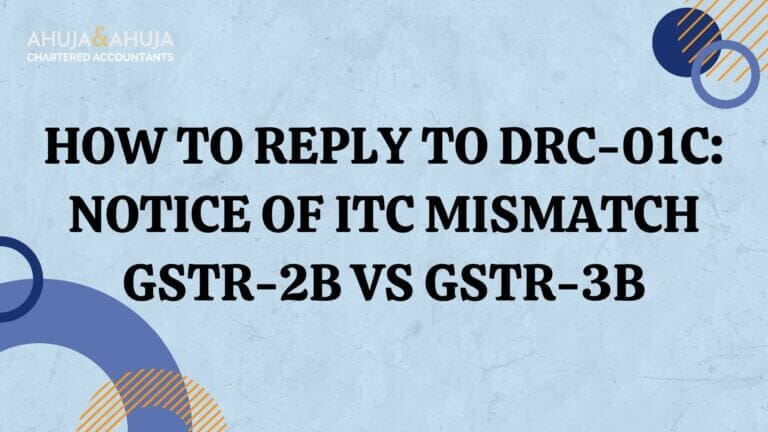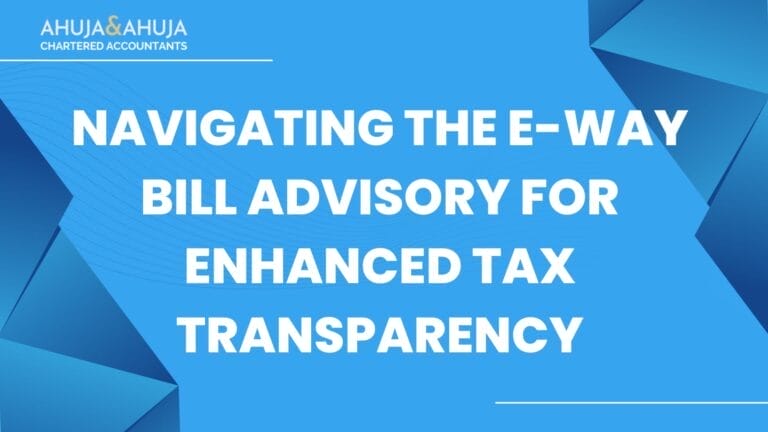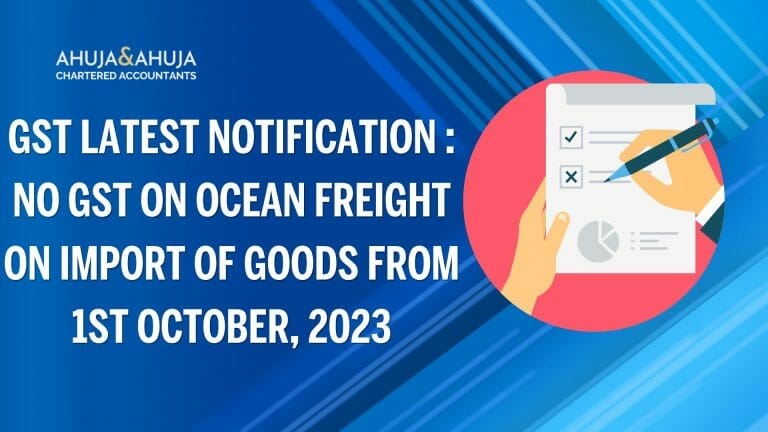Deciphering Haryana’s One Time Settlement Scheme 2023 for Pre-GST Liabilities
In a bold move aimed at easing the financial burdens of the commercial sector, Haryana’s Chief Minister Manohar Lal Khattar has recently announced the launch of the One-Time Settlement Scheme-2023 (OTS-2023). This decisive initiative seeks to bring closure to lingering pre-GST tax liabilities, a long-standing demand from the state’s business community.
A Bird’s Eye View
The OTS-2023 scheme is a strategic endeavor marking an exciting new chapter in Haryana’s fiscal policymaking. Instituted to offer businesses a fresh lease of life, the scheme addresses outstanding dues under the seven pre-GST tax acts. Functioning as a springboard towards financial consolidation, it opens up a well-defined path for businesses to discharge their existing tax dues. Commencing from January 1, 2024, and extending to March 30, 2024, the scheme paves the way for taxpayers to settle their pre-GST tax liabilities prudently. Know More about the GST Services
Classifications and Exemptions
The OTS-2023 scheme innovatively classifies taxes into four distinct categories, with each category designed to accommodate different ranges of dues. In addition to reclassifying the tax dues, the scheme also grants businesses relief by exempting them from interest and penalties associated with these underlying tax acts. This reprieve not only provides them respite but also encourages active participation, which is integral to the success of this scheme.
In the next part of this article, we will delve deeper into the intricacies of this scheme, examining the legislative details, practical steps for availing the scheme, and its economic impact on Haryana’s economic landscape. Stay tuned as we further unpack various elements of the OTS-2023 scheme and why it matters for you to leverage it. Make sure to consult with our expert team to understand how to make the most of this scheme before its deadline.
Inception of the OTS-2023 Scheme
The One-Time Settlement Scheme 2023 was introduced as a response to a demand that echoed across the cradle of Haryana’s commercial sector. Business owners and traders vehemently sought a systematic resolution to their pre-existing tax obligations, which predate the implementation of the nation’s uniform tax system, the Goods and Services Tax (GST).
Chief Minister Manohar Lal Khattar, recognizing the need for financial agility within this sector, announced the scheme as a bridge to align past liabilities with present realities. This scheme acknowledges that a clear slate in fiscal responsibilities is vital for fostering economic growth and alleviating business uncertainties.
The Legalese Unraveled
At the cornerstone of OTS-2023 lies the Haryana Settlement of Outstanding Dues Act, 2017. The substance of this scheme is imbibed within its legislative framework, allowing businesses to reclaim control over their financial narratives. The scheme classifies outstanding taxes into four groups, each accommodating specific scenarios pertaining to the amount owed and the nature of the tax dues.
Let’s break down these classifications:
- Undisputed Taxes: This segment addresses cases without any disputes. Taxpayers are expected to clear 100% of these dues, benefiting from a waiver on related penalties and interest.
- Disputed Taxes: This bracket is for tax amounts under question. If the disputed amount is less than Rs 50 lakh, taxpayers need to pay 30%, whereas 50% is due on amounts exceeding this threshold.
- Undisputed and Assessed Taxes: Here, taxes determined by the department without appeal fall into this category. Taxpayers shoulder 40% of the tax amount below Rs 50 lakh and 60% beyond that, with concessions on penalties and interest.
- Differential Taxation: This classification addresses discrepancies stemming from varying tax rates, requiring a mere 30% settlement of the total contested amount.
The initiative integrates robust features that not only clarify tax liabilities but also provide an equitable solution for older, unresolved tax disputes. Its unprecedented approach to tax amnesty sets a precedent for reconciliatory governance—wherein the government and taxpayers progress together towards fiscal consolidation.
In the upcoming segments, we shall navigate through the procedural aspects of the OTS-2023 scheme, offering a hands-on guide to embrace its benefits.
Navigating the Path to Settlement
The OTS-2023 scheme simplifies the settlement process by providing a structured approach for businesses to follow. The practical steps to avail the advantages of the scheme are designed to be straightforward and accessible, ensuring that taxpayers can navigate the process with ease and confidence.
Step-by-step Guide to OTS-2023
- Determine Eligibility: First, businesses must identify which category of outstanding taxes they belong to, as defined by the scheme.
- Online Application: The process begins with an online application in FORM OTS-1. Applicants must submit this form along with the proof of payment of the settlement amount or the first installment, as applicable.
- Receive Acknowledgement: Upon submission, a system-generated acknowledgement in FORM OTS-2 is issued electronically, which serves as a confirmation of the application.
- Jurisdictional Authority Review: The application is then evaluated by the jurisdictional authority, with comments and recommendations forwarded to the Deputy Excise and Taxation Commissioner (DETC) concerned.
- Deficiency Notice or Settlement Order: Depending on the DETC’s examination, the jurisdictional authority may issue either a deficiency notice in FORM OTS-3 or a provisional settlement order in FORM OTS-4A.
- Submission of Replies: Applicants have fifteen days to respond electronically to a deficiency notice, providing requisite supporting documents or payment proofs.
- Completion of Settlement: After the necessary reviews and recommendations, a final order of settlement in FORM OTS-4 or an order of rejection in FORM OTS-5 is issued.
- Appeal Withdrawal and Order Finalization: If applicable, applicants must also withdraw any pending appeals and provide proof in FORM OTS-6 to receive the final order of settlement.
Payment Installments and Deadlines
Recognizing the diverse financial capacities of businesses, the OTS-2023 permits payment of outstanding dues in installments:
- Amounts < Rs 10 Lakh: Lump sum payment before March 30, 2024.
- Rs 10 Lakh – Rs 25 Lakh: Payment in two installments of 50% each.
- Amounts > Rs 25 Lakh: Payment in three installments (40%, 30%, and 30% in the defined timelines).
Consequences of Non-compliance
Strict measures are in place should the applicants fail to adhere to the payment schedule or conditions. Orders of rejection are passed, and normal proceedings under various taxation acts are resumed, potentially including penalties and interest that the scheme initially forgives.
In the following segment, we shall explore the far-reaching impact of the OTS-2023 scheme on Haryana’s economic landscape and why it’s of paramount significance to stakeholders across the board.
The Ripple Effect of OTS-2023 on Haryana’s Economy
The introduction and seamless execution of the One Time Settlement Scheme-2023 in Haryana is set to catalyze robust economic transformations. This cogent measure is not just a breather for businesses to balance their sheets but also a strategic move for the state’s fiscal health.
Reinvigorating the Business Landscape
For local businesses, the scheme offers a golden reprieve, potentially redirecting funds that would settle long-standing disputes towards more productive ventures. Clearing their financial docket not only refreshes their standing with the tax departments but also with financial institutions, paving the way for easier access to capital and improved credit ratings.
Augmenting State Revenues
The scheme is a fiscal stimulant for the state, as well. By incentivizing the clearance of past liabilities, it funnels a steady flow of funds into the government’s coffers. This influx can potentially be redirected towards developmental projects, public works, or social welfare schemes, creating shared value for Haryana’s citizens.
Alignment with Broader Tax Objectives
In the broader scheme of things, OTS-2023 aligns with the principles behind the Goods and Services Tax—it simplifies the tax structure and encourages compliance. By transitioning from a complex tax ecosystem with manifold legacy issues, this scheme acts as a bridge to a cleaner, more equitable regime under GST.
Stakeholder Synergy
For stakeholders, engaging with the OTS scheme presents an active role in Haryana’s economic renaissance. It recognizes taxpayers as pivotal players in steering the state towards economic prosperity, while also balancing accountability and fiscal responsibilities.
CSR and Financial Literacy
Furthermore, businesses that rectify their fiscal liabilities are likely to be looked upon as reliable entities. This reinstates trust and can even stimulate corporate social responsibility initiatives. Enlightened businesses might be inspired to invest in community-oriented programs such as financial literacy drives, further embedding the ethos of a cooperative financial landscape.
Frequently Asked Questions (FAQs) about the OTS-2023 Scheme
Who is eligible for the OTS-2023 scheme?
Any business or trader with outstanding pre-GST tax liabilities in Haryana under the relevant acts can apply for the OTS-2023 scheme, provided they submit Form OTS-1 along with the necessary payments or proof thereof.
What are the benefits of opting for the OTS-2023 scheme?
The primary benefits include exemption from interest and penalties on the outstanding taxes, a straightforward settlement process, and the ability to pay in installments, thereby improving the business’s financial standing and enabling better focus on current operations.
Can the settlement be made in installments?
Yes, depending on the outstanding dues, businesses can opt to make the settlement in lump sum or installments. The scheme provides for varying percentages to be paid as per the bracket of the outstanding amount.
What happens if an applicant fails to comply with the scheme’s conditions?
Non-compliance leading to the non-payment within the specified periods results in a withdrawal of the provisional order of acceptance. The outstanding dues, along with interest and penalties, will be pursued as per the normal proceedings under the relevant taxation acts.
If I avail of this scheme, can the final settlement amount be refunded or adjusted at a later date?
No, any amount paid under this scheme is not eligible for a refund or adjustment under this scheme or any other state tax acts.
Are there any grounds for ineligibility for the OTS-2023 scheme?
Applicants facing criminal proceedings under the relevant Acts or those whose demands relate to erroneous refunds are not eligible for this scheme.
How will the OTS-2023 scheme impact the overall tax obligations of a business?
It provides a one-off opportunity to settle the tax dues from the pre-GST era, enabling businesses to have a clean ledger moving forward and to comply with the current GST regulations without historical liabilities clouding their tax duties.
Closing Thoughts:
The OTS-2023 scheme stands as a testament to the Haryana government’s responsiveness to the business community’s needs—alleviating tax burdens and promoting a clean slate for a fresh start. By embracing this scheme, businesses in Haryana can significantly mitigate their financial strains and realign their focus towards growth, innovation, and contribution to the state’s economy.
With this comprehensive guide on the Haryana One Time Settlement Scheme 2023, we have dissected its nuances—from inception to potential queries. It is an initiative that doesn’t just resolve old tax disputes but also engenders a collaborative fiscal environment paving the way for economic vigor and statewide prosperity.
Disclaimer
The materials provided herein are solely for educational and informational purposes. No attorney/professional-client relationship is created when you access or use the site or the materials. The information presented on this site does not constitute legal or professional advice and should not be relied upon for such purposes or used as a substitute for professional or legal advice.

